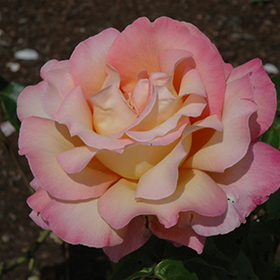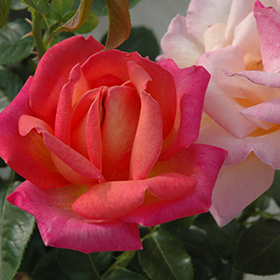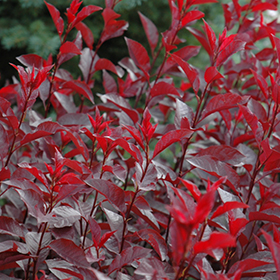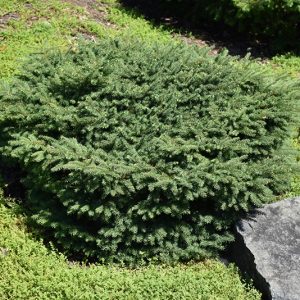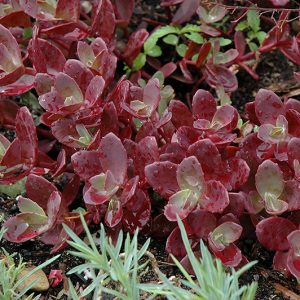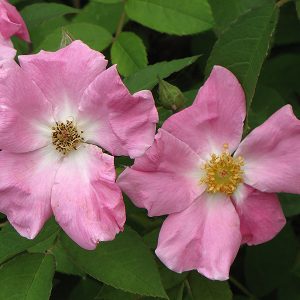Description
Growth & Care
| USDA Plant Hardiness Zone | 4b |
| Growth Rate | Fast |
| Recommended Pruning Method | Late Winter Pruning |
Foliage
| Foliage Type | Deciduous |
| Plant Form | Upright Spreading |
Flowers
| Flower Period | Spring, Summer, Fall |
| Flower Color | Pink |
| Flower Fragrance | Medium |
| Suitable for Cut Flower Arrangements | Yes |
Additional Categories
| Additional Category | Rose |
| Additional Group | Hybrid Tea Rose |
| Landscape Application | Accent, Massing, Screening, Garden |
Details
Planting & Growing
Chicago Peace Rose will grow to be about 6 feet tall at maturity, with a spread of 4 feet. It tends to fill out right to the ground and therefore doesn't necessarily require facer plants in front, and is suitable for planting under power lines. It grows at a fast rate, and under ideal conditions can be expected to live for approximately 30 years.
This shrub should only be grown in full sunlight. It does best in average to evenly moist conditions, but will not tolerate standing water. It is not particular as to soil type or pH. It is highly tolerant of urban pollution and will even thrive in inner city environments. This particular variety is an interspecific hybrid.
Landscape Attributes
Chicago Peace Rose is a multi-stemmed deciduous shrub with an upright spreading habit of growth. Its average texture blends into the landscape, but can be balanced by one or two finer or coarser trees or shrubs for an effective composition.
This shrub will require occasional maintenance and upkeep, and is best pruned in late winter once the threat of extreme cold has passed. It has no significant negative characteristics.
Chicago Peace Rose is recommended for the following landscape applications:
Accent, Mass Planting, Hedges/Screening, General Garden Use
Ornamental Features
Chicago Peace Rose features showy lightly-scented shell pink flowers with lavender overtones, yellow eyes and pink edges at the ends of the branches from late spring to early fall. The flowers are excellent for cutting. It has dark green deciduous foliage. The glossy oval compound leaves do not develop any appreciable fall color.
